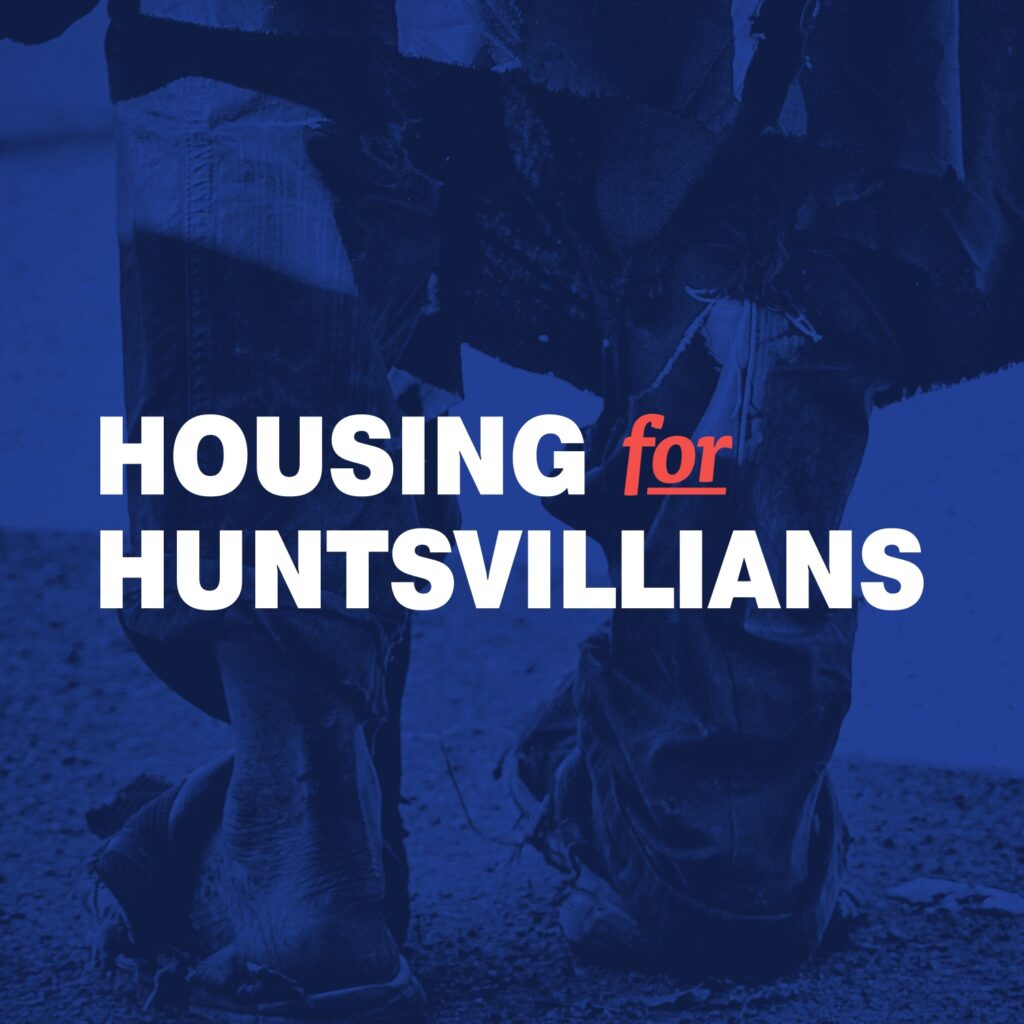Mike Tanner on five policies that actually reduce homelessness
About This Episode
At our November happy hour, the Huntsville New Liberals welcomed guest speaker Mike Tanner. We released our recording of that talk last week as a bonus episode. This week, Mike joins hosts Cathy and Rob on the podcast to discuss […]
At our November happy hour, the Huntsville New Liberals welcomed guest speaker Mike Tanner. We released our recording of that talk last week as a bonus episode. This week, Mike joins hosts Cathy and Rob on the podcast to discuss the same subject as his talk: Why the main solutions to homelessness from the left and right aren’t working and won’t work and the five policies that evidence shows can actually make a difference.
Tanner is a Senior Fellow at The Foundation for Research on Equal Opportunity (FREOPP), a non-profit think tank focused on expanding economic opportunity to those who least have it. In his more than 30 years studying public policy, Mike has testified before Congress ten times, written 11 books, and published dozens of reports, studies, and articles for outlets like the Wall Street Journal, the New York Times, and the Washington Post.
In this episode, we begin by discussing the benefits of examining the evidence –- rather than just tribes, aesthetics, and emotions – when debating policy. Then Mike explains the need to differentiate unhoused people with severe mental illness and addiction from people who simply cannot afford housing. In essence, each group requires a different approach.
Then Mike describes “Housing First,” the main policy approach to homelessness among the left and within the Biden administration and some of its biggest drawbacks. First, most Housing First programs convert some portion of existing housing stock to permanent subsidized supportive housing. But the vast majority of these programs do not involve building net new housing. Unfortunately, a city cannot reduce homelessness without building a lot more homes. In addition, long-range studies of Housing First programs shows that most recipients wind up unhoused again within ten years of entering most Housing First programs. When you add the expense of the “supportive” part of permanent supportive housing and the fact that subsidized housing is more expensive to build than market-rate, it becomes clear why Housing First, on its own, has never reduced net homelessness anywhere it’s been tried in the US and never will.
Then Mike takes aim at the right and GOP’s favorite policy approach to homelessness. Mike explains the reams of data showing that carceral approaches to homelessness are also not only ineffective at reducing homelessness but actually actively exacerbate it. As Tia and Emma pointed out in episode 5, using police to clear homeless encampments harms unhoused people and has led to at least one death in Huntsville’s unhoused communities. Sweeps don’t reduce homelessness. They just move it. And by harming unhoused people they actually further entrench homelessness. It’s harder to secure employment when you have to live further from jobs and police throw away your identification. It’s harder to lean on neighbors when you have to leave them. It’s harder to stay healthy when police throw away your mobility devices and medications. Frequent encounters with police, incarceration, and arrest/criminal records also further entrench homelessness.
Then we discuss the reams of evidence showing that the main cause of homelessness is a lack of affordable housing. Mental illness, addiction, poverty, disability, etc. do make an individual more likely to lose their housing, all else equal.
But the majority of unhoused people do not suffer from debilitating mental illness, addiction, or disability. And homelessness has increased far faster than rates of debilitating mental illness, addiction, poverty, disability, etc. And when you compare states and cities, there’s no real correlation between rates of mental illness, addiction, poverty, or disability and rates of homelessness. Instead, there is a very strong, often 1:1, correlation between housing affordability and homelessness.
Therefore, there is no policy solution to homelessness with compelling evidence of likely efficacy that does not involve building a lot more housing.
And to build a lot more housing, cities will need to streamline or get rid of exclusionary zoning laws and other regulations that limit the supply and increase the price of housing.
The other policy solutions with evidence to support them include strengthening conservatorship, giving low-income families cash instead of vouchers or subsidized housing, and allowing communities flexibility in how they address homelessness.
Coming Soon!
Stay Updated.
Sign up to receive email updates and news about local housing efforts.
